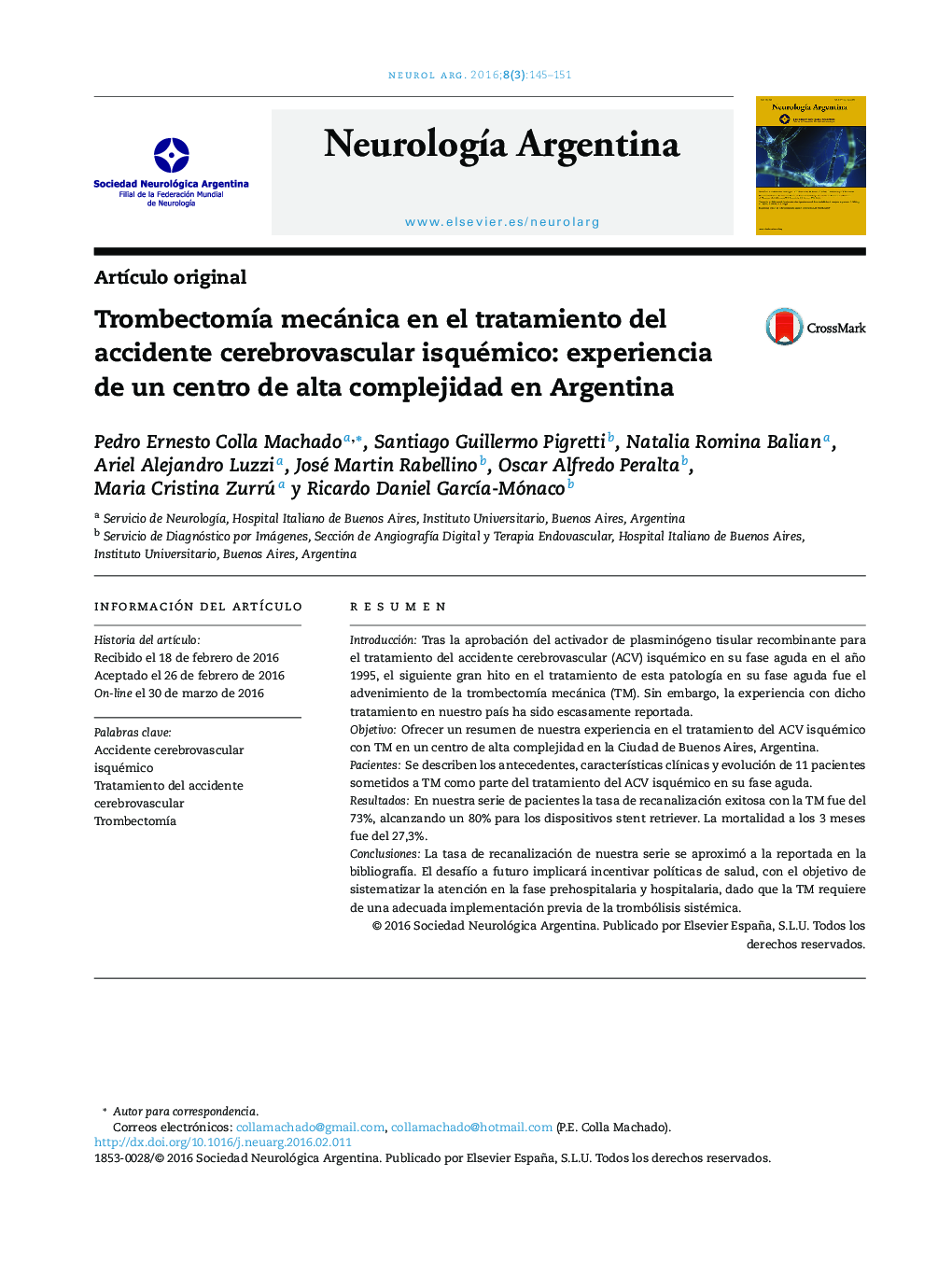| Article ID | Journal | Published Year | Pages | File Type |
|---|---|---|---|---|
| 3076521 | Neurología Argentina | 2016 | 7 Pages |
ResumenIntroducciónTras la aprobación del activador de plasminógeno tisular recombinante para el tratamiento del accidente cerebrovascular (ACV) isquémico en su fase aguda en el año 1995, el siguiente gran hito en el tratamiento de esta patología en su fase aguda fue el advenimiento de la trombectomía mecánica (TM). Sin embargo, la experiencia con dicho tratamiento en nuestro país ha sido escasamente reportada.ObjetivoOfrecer un resumen de nuestra experiencia en el tratamiento del ACV isquémico con TM en un centro de alta complejidad en la Ciudad de Buenos Aires, Argentina.PacientesSe describen los antecedentes, características clínicas y evolución de 11 pacientes sometidos a TM como parte del tratamiento del ACV isquémico en su fase aguda.ResultadosEn nuestra serie de pacientes la tasa de recanalización exitosa con la TM fue del 73%, alcanzando un 80% para los dispositivos stent retriever. La mortalidad a los 3 meses fue del 27,3%.ConclusionesLa tasa de recanalización de nuestra serie se aproximó a la reportada en la bibliografía. El desafío a futuro implicará incentivar políticas de salud, con el objetivo de sistematizar la atención en la fase prehospitalaria y hospitalaria, dado que la TM requiere de una adecuada implementación previa de la trombólisis sistémica.
IntroductionAfter the approval of recombinant tissue plasminogen activator for the treatment of ischemic stroke (IS) in its acute phase in the year 1995, the next milestone was the advent of mechanical thrombectomy (MT), which received the highest recommendation grade in the latest Guidelines of the American Stroke Association. However, the experience with this treatment in our country has been scarcely reported.ObjectiveTo present our experience with MT in the treatment of acute IS in a high-complexity medical center in the city of Buenos Aires, Argentina.PatientsThis paper describes the relevant medical backgrounds, clinical features and outcomes of 11 patients that received MT as a part of the treatment of acute IS.ResultsIn our series, the global successful recanalization rate was 73%, and when considering stent retriever devices alone, it rose to 80%. The 90-day mortality was 27.3%.ConclusionsThe successful recanalization rate in our patients was comparable to the rate reported in the literature. The next challenge implies promoting health policies aimed at systematizing the medical care in the pre-hospital and hospital settings, given that the use of MT at a given institution requires the adequate previous implementation of systemic intravenous thrombolysis.
